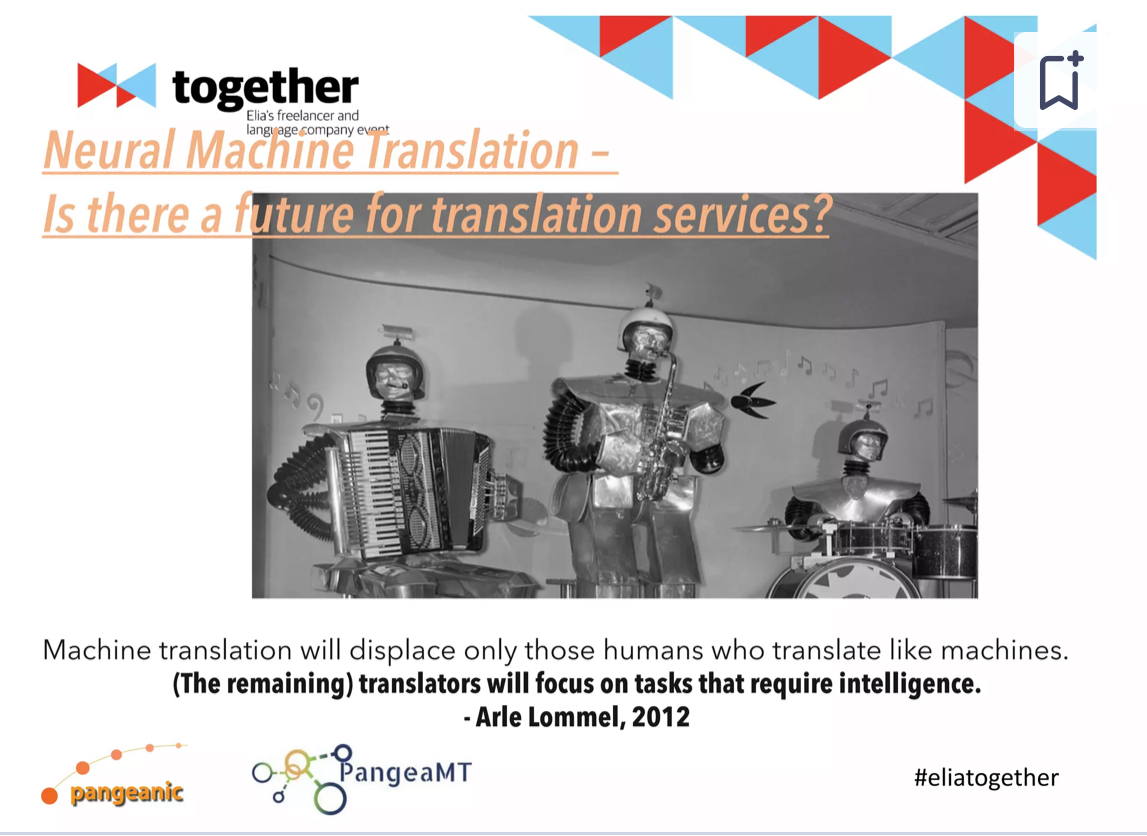
3 min read
07/04/2024
The Transformation Of Translators’ Roles And Other Professions By AI
Exploring the impact of Artificial Intelligence on translation and other professions
Evolution of Machine Translation with AI
Artificial Intelligence (AI), particularly GenAI, has revolutionized machine translation expectations, greatly improving the possibilities for translating among languages accurately and efficiently. Through advancements in machine learning, natural language processing, and neural networks, AI algorithms have become capable of understanding and reproducing human language with increasing precision thanks to larger context windows, for example. Whilst adaptive machine translation still reigns when we are dealing with specific terminology in concrete language pairs, LLMs open the possibility to translate into many more language combinations if well managed – which is never obvious and still a challenge.
The application of GenAI to the translation industry is increasingly leading to the development of cutting-edge translation workflows and new solutions that assist translators in performing their work faster and more accurately. Out go translation memories and TMS systems that corset productivity and income tools that transform the role of the translator into an expert language content manager applying culturally relevant adaptations to the source text.
The translator's role is changing to become a true language specialist, fully knowledgeable of the source language(s) and with a high level of expression and sophistication in the mother tongue. But wait! AI produces language so efficiently that we are also witnessing the birth of the “multitarget translator” – a true expert in producing content in a variety of languages, adapting it to the nuances he/she is fully conversant with.
AI technology allows translators to specialize in specific fields by providing them with updated glossaries and terminology references. Translators can now rely on AI to process larger volumes of text and identify patterns. Novel workflows enabling translators to adapt to their clients' writing styles and preferences by using LLMs are intelligent processors that adapt to specific terminology, style guides or formality.
AI's Influence on Specialization in Professions
Not only has AI transformed the field of translation, but it has also significantly impacted other professions, such as writing, editing, and proofreading. AI systems can now assist writers in generating SEO-optimized content, ensuring that their work reaches a wider audience and improves search engine rankings. Additionally, editors and proofreaders can leverage AI tools to identify errors and enhance the overall quality of text. This also impacts translation as a profession since expectations are higher for linguists to provide real value as cultural consultants – a job that may involve adapting the original or re-writing it to make it more relevant to the audience rather than being passive “sentence converters.”
Only translators that translate like machines will be displaced by machines
ELIA Together, Athens, February 2018
AI has also transformed the business world. AI-powered virtual assistants like ECO Chat can provide informative answers from the organizations' own data repositories and documents, extract knowledge, enhance client and user experience, and perform administrative duties. This allows professionals to dedicate more time to strategic and higher-value tasks, ultimately driving business growth and success.
Broader Impact of AI on Writing and Editing
The broader impact of AI on writing and editing extends beyond quickly generating SEO-optimized content and identifying errors. Because of the fluency with which they generate language, AI algorithms can analyze large datasets and identify patterns, enabling writers and editors to produce more language content with deeper insights. But just like “only those translators that translate like machines will be displaced by machines,” only those content writers who add little added value, have little to say, and whose analysis is shallow will be substituted by machines. Ingenuity and creativity are purely human features, and no creative or ingenuous person is ever lazy or shallow in an analysis. AI has arrived and is questioning the real value of many jobs that make us less human by focusing on repetitive or fault-finding procedures that don’t scale. AI-powered tools can assist in multilingual content creation, AI translation services, or adaptation by suggesting topics, providing research materials, and generating drafts to which humans add their analysis based on experience and world knowledge. This will increase productivity and enhance the most human side of us: creativity and innovation in how we communicate.
AI's Role in Business Transformation

AI plays a crucial role in transforming businesses. With AI-driven virtual assistants, professionals can delegate routine administrative tasks, allowing them to focus on strategic initiatives that drive growth and innovation. Virtual assistants can efficiently manage appointments, answer inquiries, and perform various administrative duties. This not only improves operational efficiency but also enhances the overall customer experience.

Moreover, AI technologies enable businesses to gain valuable insights from vast amounts of data. AI can help businesses make informed decisions, optimize processes, and drive competitive advantage by analyzing customer behavior, market trends, and other relevant data points.
Embracing AI for Professional Growth
While the advent of AI may seem threatening to some professionals, it presents immense growth and development opportunities. Translators and other professionals can leverage AI tools to improve their efficiency, accuracy, and specialization in their respective fields. AI can assist professionals in performing tasks more effectively, allowing them to focus on more creative and strategic endeavors.
Human understanding of language, nuances, culture, and context remains irreplaceable (for now, at least). AI is beginning to understand images and dub simultaneously between languages—and, of course, it does so at scale. While AI can enhance productivity and offer valuable insights, professionals must continue to develop and refine their human skills. By embracing AI and combining it with their expertise, professionals can unlock new levels of success and thrive in this era of transformation.


